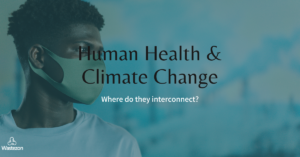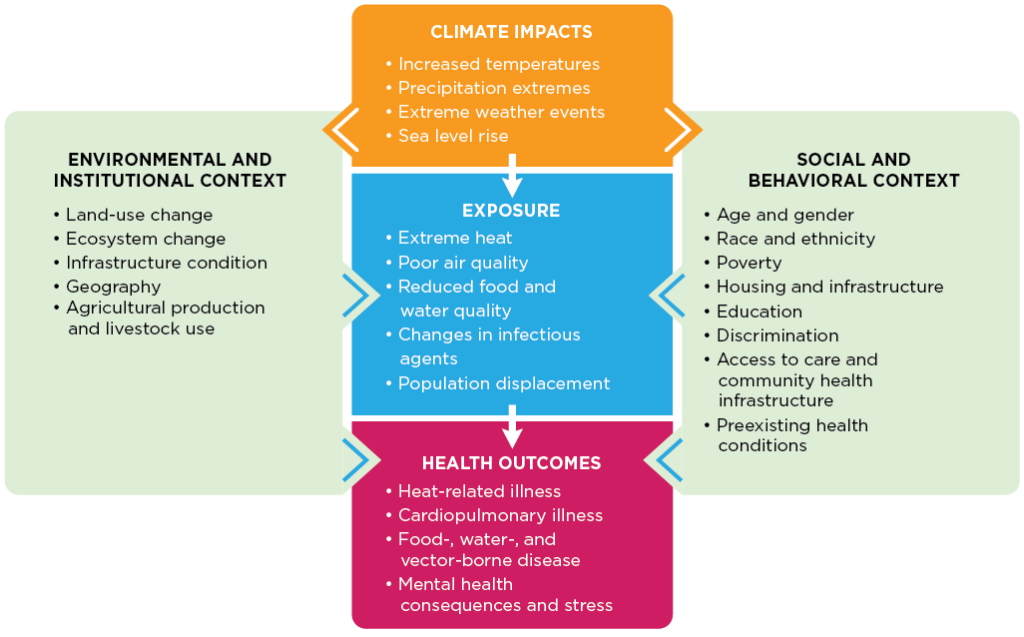Where Human Health and Climate Change Interconnect

Climate change has become a pressing issue that poses a significant threat to human health. The effects of climate change are far-reaching and can result in various health problems. The link between human health and climate change is complex, and it is essential to understand its impact on our well-being.
One of the most significant impacts of climate change on human health is the increased frequency and intensity of extreme weather events such as hurricanes, floods, and heat waves. These events can lead to injuries, fatalities, and mental health issues such as anxiety and depression. The rising temperatures and heat waves can also exacerbate respiratory and cardiovascular diseases, especially in vulnerable populations such as the elderly and children.

A report completed by The U.S. Global Change Research Program (USGCRP) created a simplified visual (figure 1) to showcase the different ways climate change adversely affects human health, which is often complex but tracking the changes and the root causes can help understand the health risk and create more push to develop solutions.
Another major cause of human health aligned with climate issues is electronic waste or e-waste. It is a significant contributor to human health problems. E-waste is generated by the disposal of electronic devices and products such as mobile phones, computers, and televisions. It is estimated that only 17.4% of total global e-waste is known to have been collected and properly recycled. These waste products contain toxic chemicals such as lead, mercury, and cadmium, which can harm human health when not disposed of correctly.
Improper disposal of e-waste can lead to these toxins leaching into the environment and contaminating soil, water, and air. This contamination can lead to a range of health problems, including respiratory and neurological damage, birth defects, and cancer. Furthermore, e-waste is often exported to developing countries, where workers are exposed to hazardous working conditions and are at risk of health problems.
So what can we do? Current assessments have implied that applying policies that involve the use of renewable energy, encouraging electric vehicles, preventing wasted food, smart management/operation of nuclear power, and more can result in the changes we need to see in order to save our health and the planet.
In conclusion, human health and the effects of electronic waste and climate change are deeply intertwined. E-waste is a significant contributor to health problems, and climate change poses a significant threat to human health. It is essential to take action to mitigate the impact of e-waste on human health and reduce the impact of climate change on our planet. By doing so, we can protect our health and well-being and ensure a sustainable future for generations to come.